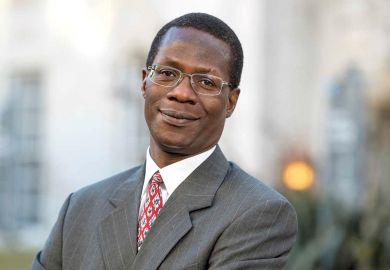A leading authority on thermal analysis has died.
Michael Brown was born in Johannesburg in 1938 and attended Highlands North Boys’ High School. In 1962, after a first degree at the University of the Witwatersrand, he joined Rhodes University as a junior lecturer. He gained his PhD in 1966 for a thesis on irradiation effects in solids, spent a year as a research officer at the SA Chamber of Mines Research Laboratories, and returned to Rhodes as a lecturer in chemistry in 1967. He was to remain there until retirement in 2003, serving as professor of physical chemistry (1978-2003), dean of science (1986-91) and acting dean of research (1994).
An expert on thermal analysis, Professor Brown was the first person at Rhodes to be honoured as an A-rated (or world-leading) researcher by South Africa’s National Research Foundation. He was awarded the South African Chemical Institute’s Gold Medal (2000) and gained prominent international recognition by becoming the first South African to be selected a fellow of the North American Thermal Analysis Society (2002). He also secured prestigious visiting research fellowships, at Queen’s University Belfast (1971) and the University of Cambridge’s Cavendish Laboratory (1980).
In his eulogy, Peter Clayton, deputy vice-chancellor (research and development) at Rhodes, noted that “Mike will be fondly remembered for his generosity to his colleagues and students with his time, expertise and resources, his wry humour, his grace, especially in difficult situations, his enjoyment of woodwork, and his extraordinary example of scholarship and mentorship at Rhodes University”.
Dr Clayton also told a story illustrating Professor Brown’s practical generosity as well as his woodworking skills. When buying pancakes at an annual fair, he noticed that the stallholders regularly burned their fingers. The following year, therefore, he turned up with “a simple tool – beautifully turned by himself – which had a handle and a shaft, into which a long slot had been cut. A chef put one end of a pancake into the slot and wound the handle, wrapping the pancake round the shaft, whence it was easily slipped on to a waiting plate.” The result was “no more burned fingers, quality-controlled pancakes and increased productivity, leading to increased sales”.
Even after formal retirement, Professor Brown remained active as a researcher and mentor, and submitted a selection of his key papers to gain a doctor of science degree at Rhodes. He died of cancer on 31 May and is survived by his wife Cindy, a daughter, a son and a grandson.
Register to continue
Why register?
- Registration is free and only takes a moment
- Once registered, you can read 3 articles a month
- Sign up for our newsletter
Subscribe
Or subscribe for unlimited access to:
- Unlimited access to news, views, insights & reviews
- Digital editions
- Digital access to THE’s university and college rankings analysis
Already registered or a current subscriber?




